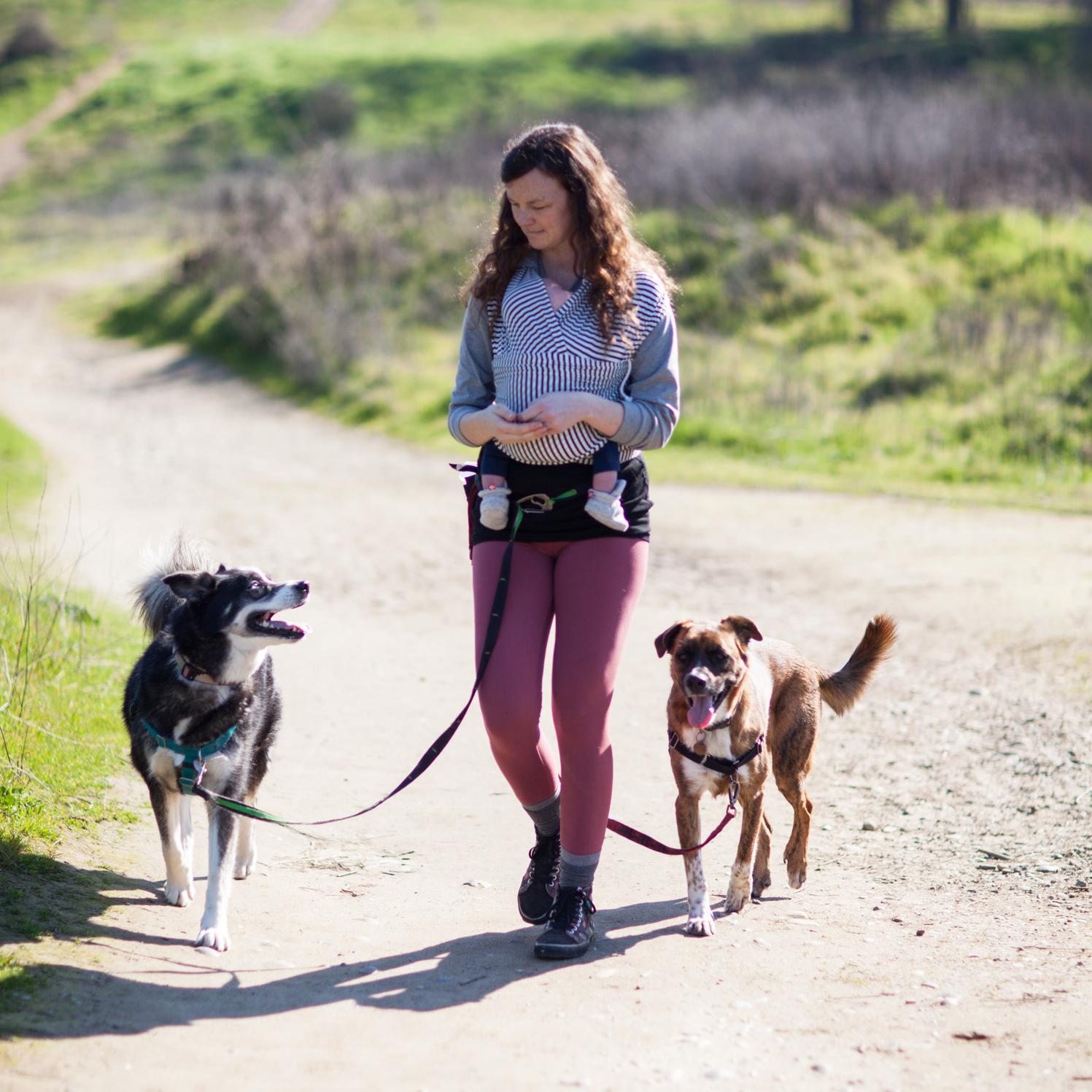You see your home every day - so much that you probably don't see it at all, anymore. It's just home. When you are expecting, or have a child, you may begin to see your home through a different lens. That well-loved coffee table is four hard corners. The outlet where you charge your phone each evening is a hazard to your little one's fingers! And those kitchen drawer - yikes!
Baby-proofing is a super common part of becoming a parent. Puppy-proofing is even quite common in the "dog parent" world! But we often fail to look for grumble and growl zones. These concepts were defined by Family Paws Parent Education and provide invaluable guidelines for pro-active planning that can prevent issues between our dogs and our children.
Grumble zones are spaces in your home where forced proximity may cause discomfort for your dog. Narrow hallways, for example, or tight spaces between furniture (like that coffee table and the couch, for example).
Growl zones are even tighter spaces where a dog may have no escape route if cornered by a wobbly little person, or an area of value where a dog may not be comfortable being approached, but also may not leave if put under stress. Examples include crates, favorite beds or resting spots, or places like underneath a table where chairs are blocking exit options.
Even the most easy going dog in the world is bound to have a few things that they are just not okay with. Setting up our homes to give our dogs exit options, places to rest without risk of being bothered, and comfortable common areas where co-existence is easy and pressure-free, is a great way to set our pups up for success. By looking through this lens now, you can begin to see your home again - through your dogs' eyes. Where might problems arise, and what can we do to prevent them?
Stay tuned for our Grumble & Growl Zone Challenge!

